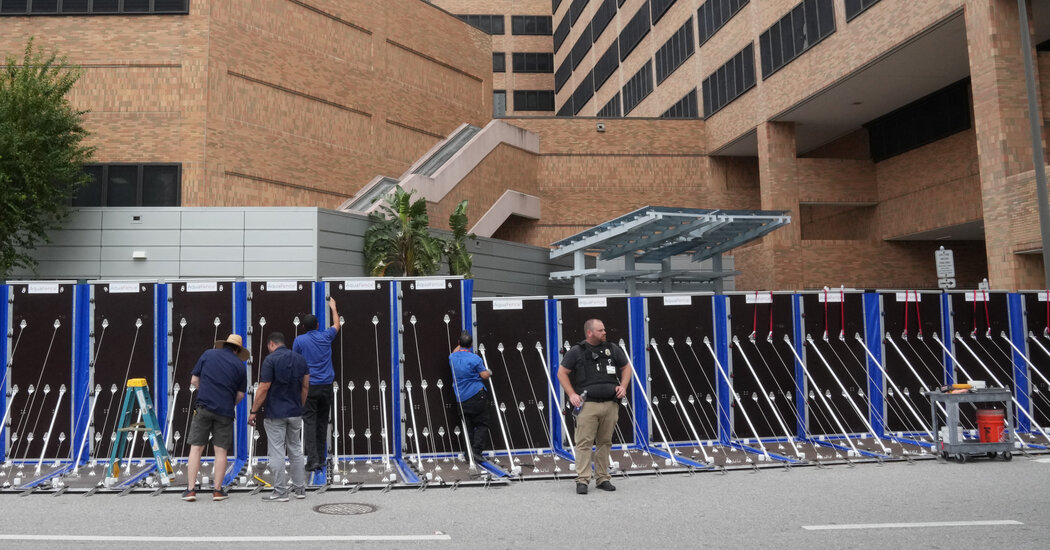Healthcare facilities across the west coast of Florida, from clinics to nursing homes, are temporarily shutting their doors and evacuating patients in preparation for Hurricane Milton’s potentially devastating landfall.
Mandatory evacuation orders in Pinellas County, which includes Clearwater and St. Petersburg, affect about 6,600 patients at six hospitals, 25 nursing homes and 44 assisted living facilities, according to the order. Scores of medical clinics and dialysis centers across the region have also closed, including dozens of outpatient facilities operated by the BayCare, a health care network.
The region’s only Level 1 trauma center, Tampa General Hospital, has deployed a temporary flood barricade that officials hope will stave off the storm surge. Most of the hospitals in the region that are still open have suspended elective operations or have stopped accepting new patients.
University of Florida Health, which operates about a dozen hospitals across the state, had enough food, water and fuel to keep its facilities operating for 96 hours, according to Peyton Wesner, a spokesman.
Mary Mayhew, president of the Florida Hospital Association, said many facilities have improved their emergency preparedness in recent years by creating backup water supplies, acquiring generators and purchasing satellite telephones in case cell service is disrupted. Most hospitals have moved key infrastructure to higher floors.
But Ms. Mayhew said there was only so much to be done in the face of a storm as powerful as Milton. “In the last few years, hospitals in Florida have had to frequently deal with these types of emergencies, but there is undoubtedly a heightened sense of concern given the magnitude of this storm and where it is likely they hit,” she said.
During Hurricane Ian in 2022, Lee Health, a hospital network south of Tampa, was forced to bring in 10 water tankers when municipal water service was disrupted, which prompted evacuations at two of its hospitals. Though no water entered the hospital itself, flooding damaged or destroyed 400 cars in the hospital’s parking lot.
“With every storm, we learn things, and we certainly learned about the dangers of storm surge,” said Dr. Larry Antonucci, the system’s president, noting that hospital employees have been asked to consider being dropped off at the facilities by someone else, or using ride share services. “We’re confident we can get through this.”
Officials at Tampa General, which is surrounded by water on three sides, are hoping its temporary flood wall will keep the storm surge at bay, just as it did during Helene two weeks ago.
The fence, manufactured by a Norwegian company, can withstand up to 15 feet of water, officials said. In one small dose of relief, hospital workers did not have to reinstall the fence to prepare for Milton: They simply never took it down.
